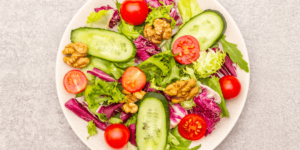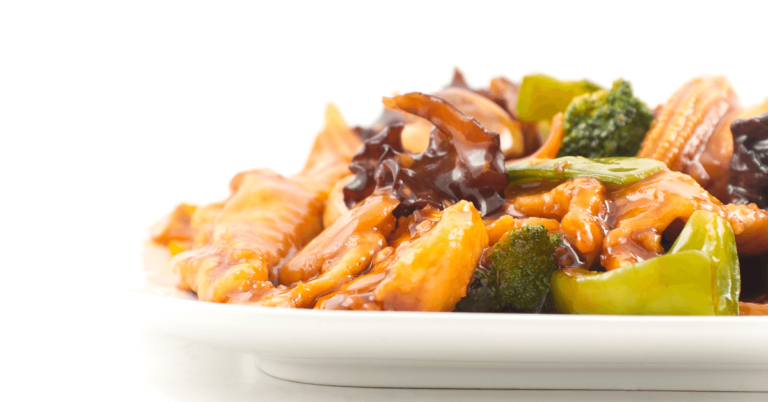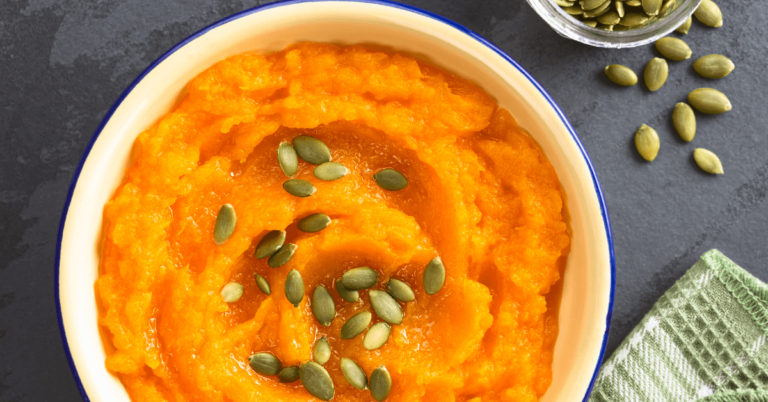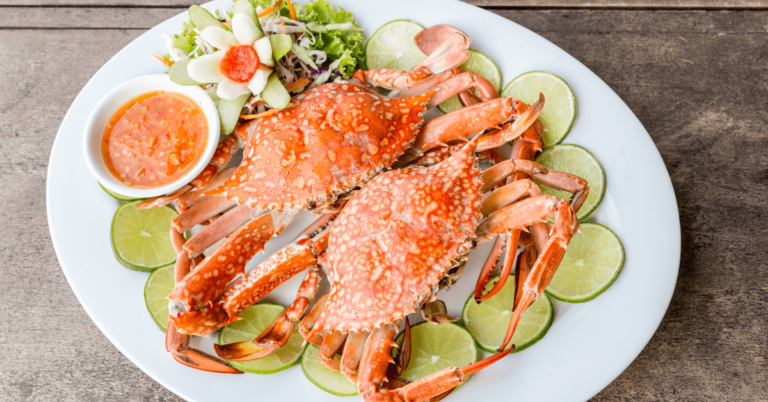Introduction to Vegetarian Diets
Definition
Vegetarian Diets is when people choose not to eat meat. It’s not just about food but also about caring for animals and the planet and staying healthy. It means eating plants instead of meat.
Types of Vegetarian Diets
There are different kinds of vegetarian diets:
- Lacto-Ovo Vegetarian: The most common type. People eat eggs and dairy but no meat, poultry, or fish.
- Lacto Vegetarian: Includes dairy but no eggs.
- Ovo Vegetarian: Includes eggs but no dairy.
- Vegan: No animal products, including dairy, eggs, and honey.
- Flexitarian or Semi-Vegetarian: Mostly plants but sometimes meat or fish.
- Pescatarian: Like vegetarians, but they eat fish and seafood too.
Benefits of a Vegetarian Diets
Health Benefits
Eating vegetarian can do wonders for your health! Here’s how:
- Heart Health: Vegetarian diets are great for the heart. They lower the risk of heart disease thanks to less cholesterol and saturated fat.
- Weight Management: Maintaining a healthy weight with a plant-based diet is more accessible. Veggies and fruits are lower in calories than meat.
- Better Digestion: Plants are high in fiber, which helps digestion and keeps your gut happy.
- Reduced Cancer Risk: Some studies show vegetarians might have a lower risk of certain cancers.
- Diabetes Control: A vegetarian diet can help control blood sugar and may reduce the risk of type 2 diabetes.

Environmental Impact
Being vegetarian is not just good for you but also the planet:
- Less Land Use: Growing plants need less land than raising animals. This means more natural habitats can be saved.
- Lower Greenhouse Gases: Animal farming produces a lot of greenhouse gases. By eating plants, you help reduce these emissions.
- Conserving Water: Raising animals for food takes a lot of water. Plants need less water, so you save this precious resource.
- Biodiversity: Less animal farming means more diverse wildlife and plants.
Essential Nutrients for Vegetarian Diets
Protein Sources
Finding protein as a vegetarian is easier than you might think. First off, beans and lentils are not only rich in protein but also super versatile in your cooking. Then, there’s tofu and tempeh, made from soybeans, which are fantastic in stir-fries or salads. Additionally, nuts and seeds, like almonds and pumpkin seeds, are perfect for a quick protein boost. If you include dairy in your diet, cheese and yogurt are excellent sources of protein. Lastly, for those who eat eggs, they’re another great option for protein.
Iron and Vitamin B12
Iron and Vitamin B12 are crucial for vegetarians. For iron, you can turn to leafy greens like spinach and lentils, and even fortified cereals. Moreover, Vitamin B12 can be a bit tricky since it’s mostly found in animal products. However, vegetarians can get it from fortified foods such as certain plant milks, breakfast cereals, and nutritional yeast.
Calcium and Vitamin D
For strong bones, calcium and Vitamin D are essential. Dairy products are a go-to for calcium if you consume them. Otherwise, fortified plant milks and tofu are great choices. Also, leafy greens like kale can help. As for Vitamin D, the best source is sunlight, but you can also get it from fortified plant milks or cereals.
Comprehensive List of Foods for Vegetarian Diets
Fruits and Vegetables
A rainbow of options! Eat a variety of all the vitamins and minerals:
- Fruits: Apples, bananas, berries, oranges, melons, and more.
- Vegetables: Leafy greens, carrots, broccoli, bell peppers, and others.
Whole Grains
Hearty and filling, whole grains are a must:
- Rice: Brown or wild rice for extra nutrients.
- Quinoa: A protein-packed grain.
- Oats: Great for breakfast.
- Barley and Millet: Good for variety.
Legumes and Beans
Protein and fiber-rich choices:
- Lentils: Red, green, or brown, they’re versatile.
- Chickpeas: Great in salads or as hummus.
- Black Beans and Kidney Beans: Perfect for soups and chili.
Nuts and Seeds
For snacking or adding crunch:
- Almonds, Cashews, Walnuts: Great for heart health.
- Chia Seeds, Flaxseeds: Omega-3s and fiber.
Dairy Alternatives
Plenty of options without dairy:
- Almond, Soy, and Oat Milks: Creamy and often fortified with vitamins.
- Coconut Yogurt: A dairy-free yogurt alternative.
- Vegan Cheese: Made from nuts or soy.
Plant-Based Protein Sources
To keep your energy up:
- Tofu and Tempeh: Made from soybeans, these are versatile in cooking.
- Seitan: A wheat-based protein, great for a meaty texture.
- Pea Protein: Often found in plant-based burgers and other products.
Vegetarian Meal Planning
Breakfast Ideas
Start your day right with these tasty options:
- Oatmeal: Top it with fruits and nuts.
- Smoothies: Blend your favorite fruits with spinach and plant milk.
- Veggie Omelet: Load eggs or a vegan egg substitute with veggies.
- Yogurt Parfait: Layer yogurt with granola and berries.
- Avocado Toast: Simple and delicious, topped with seeds or tomatoes.
Lunch Ideas
Keep your energy up through the day:
- Veggie Wraps: Fill a whole-grain wrap with hummus, veggies, and avocado.
- Quinoa Salad: Mix quinoa with beans, veggies, and a zesty dressing.
- Veggie Burger: Serve with sweet potato fries for a satisfying meal.
- Lentil Soup: Hearty and filling, perfect with a slice of whole-grain bread.
- Pasta Salad: Use whole-grain pasta and load it with your favorite veggies.
Dinner Ideas for Vegetarian Diets
End your day with these comforting meals:
- Stir-Fry: Tofu or tempeh with a variety of veggies and brown rice.
- Veggie Pizza: Top with your favorite veggies and dairy-free cheese.
- Spaghetti with Marinara Sauce: Add lentils or mushrooms for a protein boost.
- Bean Chili: Warm and hearty, great with cornbread.
- Stuffed Bell Peppers: Fill with rice, beans, and veggies.
Snacks and Desserts for Vegetarian Diets
Healthy bites and sweet treats:
- Snacks: Carrot sticks with hummus, fruit slices, or a handful of nuts.
- Desserts: Fruit sorbet, vegan cookies, or dark chocolate.
Common Misconceptions About Vegetarian Diets
Protein Deficiency
Many think vegetarians don’t get enough protein, but that’s not true! Here’s why:
- Plenty of Protein Sources: Vegetarians eat beans, lentils, tofu, nuts, and dairy (if they’re not vegan). These are all packed with protein.
- Protein Needs: Most people need less protein than they think. A balanced vegetarian diet usually meets or exceeds protein needs.
Limited Food Choices
Some believe vegetarian diets are bland, but there’s so much variety:
- Endless Options: Vegetarians enjoy fruits, vegetables, grains, legumes, nuts, seeds, and dairy alternatives. There are plenty of choices.
- Creative Cooking: Vegetarian cooking encourages creativity. You can make vegetarian versions of many popular dishes, like burgers, pizzas, and tacos.
Tips for Transitioning to a Vegetarian Diets
Gradual Changes
Switching to vegetarianism can be easy and enjoyable. Here’s how to start:
- Start Slow: Begin by having meat-free meals a few times a week.
- Swap Out Meat: Try meat substitutes in your favorite dishes.
- Explore New Recipes: Look for vegetarian versions of meals you already love.
- Increase Plant-Based Foods: Add more fruits, vegetables, and whole grains to your diet.
Reading Food Labels
Knowing what’s in your food is critical:
- Check for Non-Vegetarian Ingredients: Some products may have hidden animal-based ingredients.
- Look for Vegetarian Labels: Many products now have labels indicating they suit vegetarians.
- Learn About Additives: Some animal-derived additives, like gelatin or specific E numbers. Do a quick check online if you need clarification.
Dining Out as a Vegetarian
Eating out can still be fun and easy:
- Research Restaurants: Look up menus online to find vegetarian-friendly spots.
- Ask for Modifications: Many restaurants are happy to accommodate vegetarian requests.
- Explore Ethnic Cuisines: Many cultures have a rich variety of vegetarian dishes – Indian, Thai, and Mediterranean, to name a few.
Conclusion about Vegetarian Diets
Recap of Vegetarian Diet Benefits
Let’s remember why going vegetarian is excellent:
- Healthier You: Vegetarian diets can lower the risk of diseases, help with weight management, and boost heart health.
- Happy Planet: Eating plant-based helps the environment by reducing greenhouse gases and saving water and land.
- Delicious Variety: There’s a vast range of tasty and nutritious foods to enjoy.
Encouragement for Exploring Vegetarianism
Are you thinking about going vegetarian? Give it a try! It’s a positive change for your health and the planet. Start small, experiment with new foods, and enjoy the journey. A whole world of delicious, healthy vegetarian foods is waiting for you. Go for it!
FAQs
Frequently asked questions about vegetarian diets:
- Q: Will I get enough protein as a vegetarian?
- A: Absolutely! Beans, lentils, tofu, nuts, and dairy (if you’re not vegan) are all great protein sources.
- Q: Can a vegetarian diet help me lose weight?
- A: It can! Vegetarian diets are often lower in calories and fat, making weight management more effortless.
- Q: Is it expensive to be vegetarian?
- A: Not necessarily. While some specialty items can be costly, essential vegetarian foods like grains, beans, and veggies are affordable.
- Q: Do I need to take supplements?
- A: Some vegetarians might need supplements, especially for Vitamin B12 and Vitamin D. It’s best to consult a healthcare professional.
- Q: Can I be vegetarian if I’m pregnant or breastfeeding?
- A: Yes, with careful planning to ensure you get all the necessary nutrients. It’s always good to consult a healthcare provider for personalized advice.
- Q: Are there vegetarian options when dining out?
- A: Yes, many restaurants offer vegetarian dishes, and some cuisines, like Indian or Mediterranean, have a wide variety.
- Q: How do I start a vegetarian diet?
- A: Begin with minor changes, like meat-free days, and gradually increase your intake of plant-based foods.
- Q: Can kids be vegetarians?
- A: Children can follow a vegetarian diet, but ensuring they get all the necessary nutrients for their growth and development is essential.
Remember, transitioning to a vegetarian lifestyle is a personal journey, and it’s okay to take it one step at a time!






